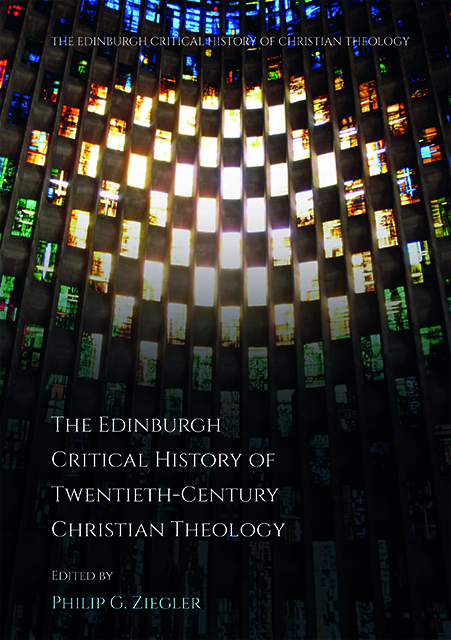Book contents
- Frontmatter
- List of Contents
- Notes on Contributors
- Editor's Introduction
- 1 Modern Theology in a Scientific, Historical Age
- 2 Tradition and Innovation
- 3 Scripture and Criticism
- 4 Reason, Method, System
- 5 Catholicism and Ecumenism
- 6 Fundamentalism and Evangelicalism
- 7 Synagogue, Sho’ah and State
- 8 Religion(s)
- 9 God
- 10 Spirit
- 11 Christ
- 12 Liberation and Freedom
- 13 The Secular – The Political: Augustine and Political Augustinianism in Twentieth-Century Political Theology
- 14 Globalisation after Empires: World Christianity and the Theological De-centring of Europe
- 15 War and Peace
- 16 Race and Black Theology
- 17 Sex and Gender
- 18 Hope
- Index
17 - Sex and Gender
Published online by Cambridge University Press: 14 July 2023
- Frontmatter
- List of Contents
- Notes on Contributors
- Editor's Introduction
- 1 Modern Theology in a Scientific, Historical Age
- 2 Tradition and Innovation
- 3 Scripture and Criticism
- 4 Reason, Method, System
- 5 Catholicism and Ecumenism
- 6 Fundamentalism and Evangelicalism
- 7 Synagogue, Sho’ah and State
- 8 Religion(s)
- 9 God
- 10 Spirit
- 11 Christ
- 12 Liberation and Freedom
- 13 The Secular – The Political: Augustine and Political Augustinianism in Twentieth-Century Political Theology
- 14 Globalisation after Empires: World Christianity and the Theological De-centring of Europe
- 15 War and Peace
- 16 Race and Black Theology
- 17 Sex and Gender
- 18 Hope
- Index
Summary
In his revolutionary book of 1976, The History of Sexuality: An Introduction, Michel Foucault announced what is one of the most counterintuitive challenges to our conceptions of human identity. Sexuality, far from being a given, Foucault argued, is thoroughly constructed – it is the product of discursive regimes operating on the subject. Foucault's argument was an assault on the final stronghold of the Enlightenment subject, a subject understood to be autonomous and self-determining. For sexuality offered thinkers as diverse as Freudians and feminists, traditionalists and revolutionaries, a place to stand. Sexuality – and its concomitant conceptions of gender difference – afforded, it would seem, an unambiguously material and concrete starting point. Theologians of various stripes were keen to explore the new ‘sciences’ of sexuality, and specifically to offer a uniquely theological framing of their discoveries. But what if sexuality is far less straightforward than it would seem? What if, for all its seeming self-evidence, sexuality serves as a cipher for other cultural anxieties and preoccupations? What if the final unveiling of sex's meaning leads to further concealment? Foucault puts it thus:
Sex – that agency which appears to dominate us and that secret which seems to underlie all that we are, that point which enthralls us through the power it manifests and the meaning it conceals, and that which we ask to reveal what we are and to free us from what defines us – is doubtless but an idea point made necessary by the deployment of sexuality and its operation. We must not make the mistake of thinking that sex is an autonomous agency which secondarily produces manifold effects of sexuality over the entire length of its surface of contact with power. On the contrary, sex is the most speculative, most ideal, and most internal element in a deployment of sexuality organized by power in its grip on bodies and their materiality, their forces, energies, sensations and pleasures.
Even if we wish to concede that there are material and biological data that can be read off human anatomy and experience, Foucault warns us that we should be cautious about the meaning that we attribute to these, and about the directives that theologians, like others, wish to mandate from the seemingly raw ‘facts’ of sexuality. Of specific concern for this essay are the heightened anthropological claims that sexuality appears to commend.
- Type
- Chapter
- Information
- Publisher: Edinburgh University PressPrint publication year: 2022

